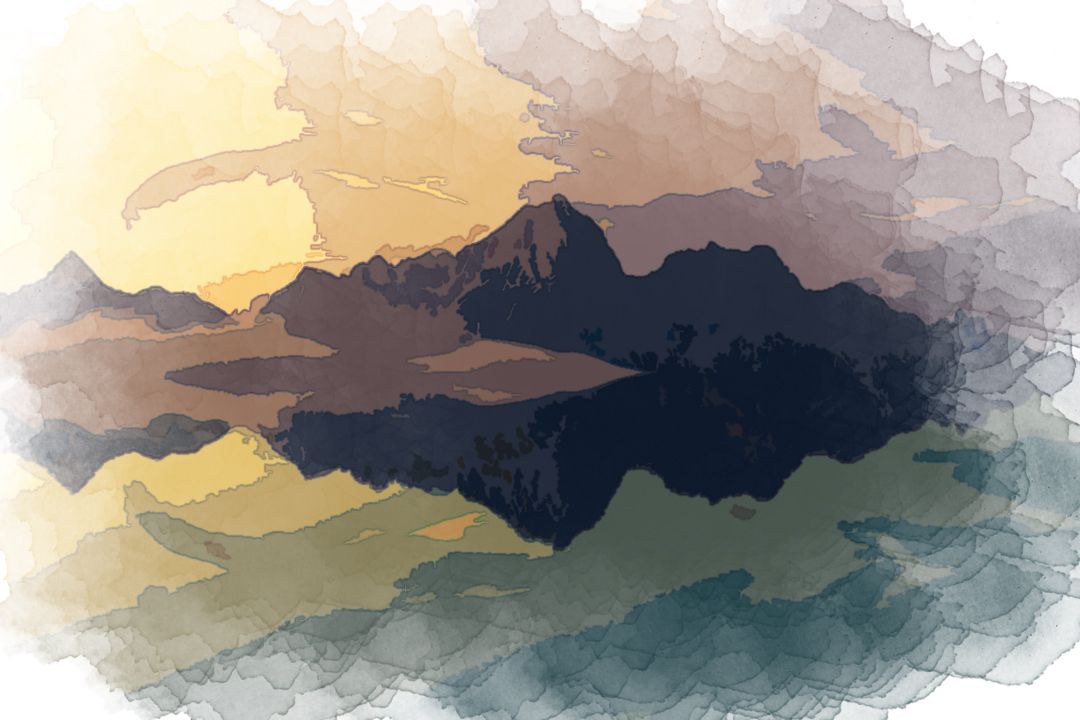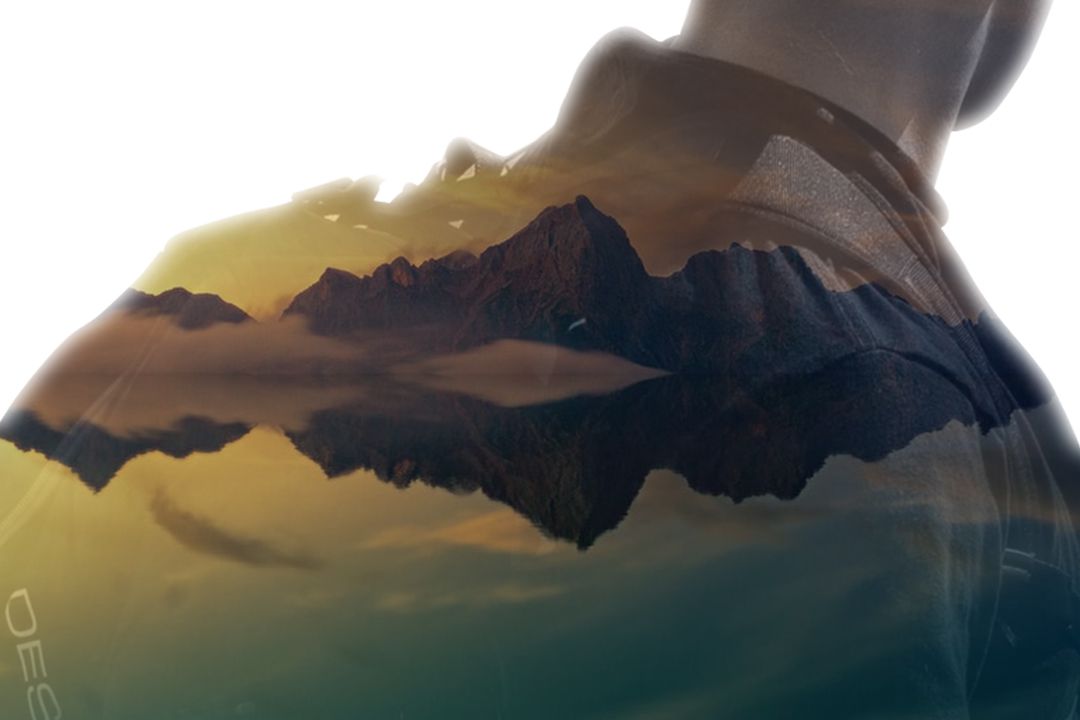Parse and Prosper

Parse, Then Prosper — The Mountainous Terrain of Eudaimonica
In the quaint village of Eudaimonica, beneath the shadow of the imposing mountain range that gave the place its name, lived Sophia—a woman whose wit was as sharp as the peaks that loomed above. She spent her days in the pursuit of understanding, not just of nature, but of the human condition. It was a common sight to see her at the local tavern, debating with anyone foolish enough to engage. Alexander, the village's self-appointed philosopher and part-time barkeep, often played the foil to her jousting intellect.
Sophia believed in the economy of language, much like the ancient mathematician she admired. One evening, as the sun's embers cooled on the mountain tops, she raised her glass and declared to the tavern's patrons,
Do not say a little in many words but a great deal in a few.
— Pythagoras (570-495 BC)
The room fell into an amused silence, for they all knew Sophia's penchant for encapsulating vast concepts into bite-sized morsels of wisdom. The villagers would nod, murmur in agreement, and then proceed to utterly ignore the advice, much to Sophia’s chagrin and amusement.
Alexander, wiping down the counter with a rag as old as some of his anecdotes, challenged her. "And what great deal have you said today, Sophia?" he asked with a sardonic smile.
"In fewer words than one can recount their ailments, I've convinced Old Man Henley that his chickens would lay just as well without his dawn serenade." The tavern erupted in laughter, as everyone was well acquainted with Henley’s tone-deaf crooning at sunrise.
The discussion soon turned to the value of things. Alexander, a man who prized his imported wines and overpriced, underused novelties, waxed poetic about the monetary worth of his goods. Sophia, however, saw things through a different lens. To her, the true value of an object lay not in its price but in its story, its utility, and the joy it could bring—no matter how mundane the object might be.
The night grew long and the ale flowed freely. As the patrons began to trade their tales for sleep, Sophia considered the mountainous path ahead. She knew that with dawn would come clarity, a fresh perspective to consider the worth of her words and the wealth of her experiences.
She planned to ascend the peaks at first light, taking only what she needed—her wit, a sturdy pair of boots, and an unquenchable curiosity. As she looked up at the stars twinkling like mischievous eyes above, she mused on the idea that perhaps the greatest prosperity was found not at the end of a laborious quest but in the richness of everyday simplicity.
The night waned, and Sophia’s thoughts danced like the shadows cast by the flickering tavern candles. She prepared to retire, knowing that tomorrow’s journey would bring its own set of challenges and triumphs. In the quiet of the closing tavern, with the mountains a silent backdrop to her contemplation, she smiled at the thought of what the new day would parse from the language of the land.
As dawn crept over the village of Eudaimonica, painting the peaks with a blush, Sophia embarked on her ascent. The path before her was a metaphorical marketplace where each step was a negotiation with gravity, and every mile gained was a hard-won bargain. Her progress was a currency spent not in the clang of coins but in the silent testament of sweat and perseverance.
Sophia’s mind drifted to Alexander's last outrageous claim: that his newest concoction of herbs would not merely heal ailments but could convince the gods to rewrite one's fate.
What we obtain too cheap, we esteem too lightly; it is dearness only that gives everything its value.
— Thomas Paine (1737-1809)
She mused on the peculiar human trait to attach value to struggle. Did the mountain care for the price of its conquest? Perhaps it was amused by the tiny figures that toiled upon its slopes, each believing their triumphs and tribulations were of some cosmic significance.
Her musings were interrupted by the squawk of a bird, one of those overconfident creatures that seemed to mock her laborious climb with its effortless flight. "Bet you think you're very clever," she chided the bird, which only cocked its head as if considering a retort before taking to the air once more.
Halfway up the mountain, Sophia encountered a traveler coming down—a man with eyes that sparkled with mirth and a gait that suggested he found the act of descending no less amusing than a dance. He tipped his hat to her, a gesture from a bygone era that suited his timeless demeanor.
"If you're searching for wisdom up there," he called down to her, "don't look for it in the rocks. It's in the climbing."
Sophia chuckled. "Thanks for the tip," she replied, "but I've always been one to learn the hard way."
It was during a pause to catch her breath that she sat on a boulder and took in the view. The village was a patchwork of life and memory below her. Her own hardships seemed to shrink, viewed from this height, and she could not help but feel a swell of gratitude.
Reflect upon your present blessings — of which every man has many — not on your past misfortunes, of which all men have some.
— Charles Dickens (1812-1870)
Sophia thought of the tavern, the hearth of human folly and wisdom, and she couldn't suppress a grin. Sure, she had her share of misfortunes—like the time she trusted Alexander's 'absolutely safe' fireworks for the festival—but her blessings were indeed plentiful.
As she neared the summit, the details of life in the village began to blur, and she was struck by an epiphany that would have surely delighted Thoreau himself.
Our life is frittered away by detail... simplify, simplify.
— Henry David Thoreau (1817-1862)
The myriad worries and daily vexations seemed petty from her lofty perch. Sophia saw the comedy in the human plight, the intricate dances we do around the simple truths. She found a serene humor in her quest for prosperity of the mind and heart, which, as it turned out, required no summit at all—just a good pair of hiking boots and the ability to laugh at the absurdity of it all.
Now, with the summit within reach, Sophia looked forward to the descent, to sharing her newfound simplicity—a simplicity that was not a reduction but a distillation of life to its most joyful essences. And as for Alexander's overpriced concoctions, she planned to bargain with the best of them, armed with a tale of her own.
The summit of Eudaimonica’s mountain was a place of quiet revelation, where the sky seemed to be a mere arm’s length away, ready to be plucked and pocketed like an oversized blueberry. Sophia stood at the peak, her laughter ringing out as the wind whipped her words away. She had conquered the mountain, but instead of feeling the triumphant conqueror, she felt like a willing participant in an ancient joke.
Intelligence flourishes only in the ages when belief withers.
— Emil Cioran (1911-1995)
Sophia, with a philosopher's stone in her pocket (or so Alexander claimed it to be), reflected on Cioran's observation. Her intelligence had indeed flourished up here, not in the form of cold, hard facts and data but as a profound understanding of the absurdity of her quest for some great truth atop a mound of earth and stone.
She had ascended in search of prosperity, expecting to find it in the form of enlightenment, but what she found was something far richer—her own skepticism and joyous disbelief in the esoteric nonsense that so often passes for wisdom. She laughed at herself, at the grandiose expectations, and the whimsical notion that the universe had secrets it only whispered to those who climbed mountains.
This skepticism had sharpened her wit, deepened her laughter, and taught her to value the questions as much as the answers. She saw now that belief wasn't a garden to be tended but a wild field to be explored, with the knowledge that some things would remain wonderfully unattainable.
The descent promised to be less a journey back to reality and more a return to a theatre of the absurd, where she played the part of both the wise sage and the court jester. Sophia imagined the look on Alexander's face when she would tell him that the summit held no wisdom, just the echo of her own laughter. She knew he would feign shock, stroke his chin in mock contemplation, and then try to sell her a map to a more 'prosperous' peak.
Yet, the joke would be on him, for Sophia had discovered that prosperity wasn't about reaching the highest point or unearthing some profound truth. It was about reveling in the richness of existence—the simplicity of a breath of fresh mountain air, the complexity of the human psyche, and the hilarity of seeking meaning in the meaningless.
She would return to Eudaimonica's embrace with tales to tell and with the lightness that only comes from understanding that the best parts of life often can't be parsed or prospered from but simply experienced. And maybe, just maybe, she'd let Alexander in on the true secret of her journey: that sometimes, the best way to prosper is simply to laugh at the mountains one is determined to climb.

The planksip Writers' Cooperative is proud to sponsor an exciting article rewriting competition where you can win part of over $750,000 in available prize money.
Figures of Speech Collection Personified
Our editorial instructions for your contest submission are simple: incorporate the quotes and imagery from the above article into your submission.
What emerges is entirely up to you!
Winners receive $500 per winning entry multiplied by the article's featured quotes. Our largest prize is $8,000 for rewriting the following article;

At planksip, we believe in changing the way people engage—at least, that's the Idea (ἰδέα). By becoming a member of our thought-provoking community, you'll have the chance to win incredible prizes and access our extensive network of media outlets, which will amplify your voice as a thought leader. Your membership truly matters!


